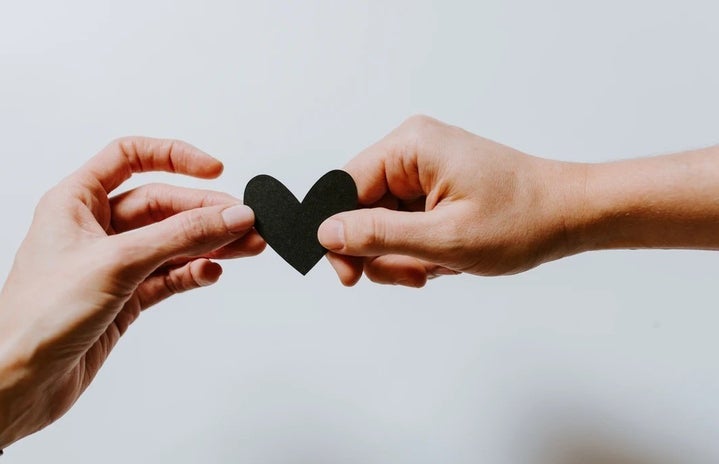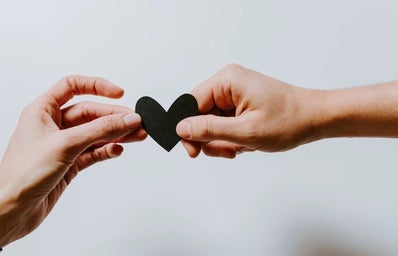TW: sexual assault, abuse, mild violence
With the release of the third and final Kissing Booth movie, I took several days to reflect on the entire film series. The Kissing Booth 1, 2 and 3 are more than horribly-acted films with cringe-worthy scripts and overused teen movie tropes. They are proof that Wattpad stories (an online fan-fiction and amateur creative writing portal) should be left just as that. Watching these films for simple entertainment isn’t hurting anyone, but when young audiences are fed with unhealthy portrayals of romantic relationships and friendships… there is room for concern.
For those who don’t know, here’s a small recap of the series. Elle and Lee are childhood best friends. Lee and Noah are brothers. Elle has a secret crush on Noah and knows Lee would not approve. Alright, let’s hop in.
A dark past and a violent temper is desirable
One of the first things I noticed watching these movies was the complete romanticization of Noah’s violent tendencies. The writers observe his bad boy demeanour as something that makes him attractive. In fact, the narrative is that Noah is “fixed” by Elle’s love. His temper is a concern – so much so that his brother Lee assumes an injury Elle acquires is actually a result of Noah physically abusing her. Several instances in the films portray Noah choosing to refrain from fighting simply because Elle kindly asks him not to while fawning over his “changed” behaviour. This is an incredibly unhealthy representation of a relationship, one that gives young audiences the belief that someone with a dark past and a history of violence is loveable to the point that they can be fixed––a pattern that often culminates in the famous “he/she is different with me” line.
Extreme possessiveness is cute
On the same note, there is yet another outstanding quality Noah demonstrates: possessiveness. When Elle returns to school to find that she is suddenly of great interest to every boy, Noah makes it his sole mission to “protect” Elle from these boys. He picks fights with them and threatens to beat them up if they try to ask her out. Now, this is allowed in this narrative because of Noah’s glaringly good looks; however, had it been anyone else, this would be considered incredibly creepy and inappropriate. Not once did Elle ask for his protection or careful interest, so this plays into the concept of consent (much like Edward Cullen’s uncalled-for overprotective behaviour towards Bella, but that’s a topic for another day). Unfortunately, the writers are telling audiences that stalker-like possessiveness is a quality to be admired.
Cheating is part of every relationship
To say the second movie was an improvement from the first would be a lie. We saw the return of annoying cliches and ridiculously repetitive montages, but also welcomed a new territory of unhealthy habits in Elle and Noah’s relationship. Noah has now moved to Harvard (because, yes, Harvard apparently admits violent football players) and he and Elle have a crack at long distance. While there are accurate portrayals of jealousy and concern about who Noah is spending his time with, Elle begins to form a far too friendly relationship with another attractive boy from school, Marco. One thing leads to another and Elle cheats on Noah in front of him with a boy who knows she is taken.
The narrative then begins to belittle the severity of infidelity. There never even seems to be an apology from Elle, instead just a halfhearted explanation centered around her own fears of Noah cheating on her. Needless to say, this is not how healthy, long-lasting relationships are built – something that is unbeknownst to young audiences.
Being horny means you can sexually harass people
As if it weren’t enough that these movies touch on physical abuse in the completely wrong sense, there is also far too much comfortability with sexual harassment between characters. As mentioned above in the first movie, Elle realizes that she is of great interest to several boys at school because her body has developed into that of a woman. This is followed by a very inappropriate example of sexual harassment where a student decides to slap her butt when she’s not looking. The school’s administration’s reaction was incredibly underwhelming, portraying that this type of behaviour is “no big deal”.
Though Elle was the victim in this scenario, she becomes the perpetrator in the second movie. In a silly coincidence of events, she embarrassingly and brazenly describes the new student, Marco’s looks, over the school’s PA system. Using very sexually-driven words to talk about a student she hasn’t even met, Elle crosses a boundary that is shown to be of little concern. Her sexualization of Marco is treated as a punchline of terrible teen comedy and is teaching audiences that this kind of behaviour is admissible, regardless of which gender it is directed at.
Friendships have to be codependent
While romantic relationships are the central point of toxicity in these movies, Elle and Lee’s immature “friendship” becomes the forefront of toxicity in the final movie. Elle and Lee have a list of rules dictating their friendship, which is the focal point of the first and last film. For starters, these rules are unbelievably arbitrary and childish, and practically require them to devote their lives to their friendship. Throughout the series, Lee constantly has temper tantrums when Elle doesn’t include him in something or goes against their rules. He is never seen being supportive, or at least, understanding of Elle’s desires – instead he acts quite the opposite. He whines when she decides to apply to a different college and retorts when she chooses to be with Noah. The films show Elle constantly apologizing or feeling guilty for making decisions for herself when it is actually Lee who is overwhelmingly co-dependent on Elle and their so-called friendship. Their all-encompassing relationship stops them from making other friendships and harbouring deeper relationships within themselves. For young audiences who are in the process of making their own friendships, this movie can be damaging and misleading.
If there’s anything we can learn from The Kissing Booth series, it is what not to look for in romantic relationships and friendships. Toxic violence is not sexy; hormones do not condone crossing boundaries and friendships should be an addition to an already happy life, not the focus. The Kissing Booth series is insufferably dangerous for young audiences to idolize and base their own habits around. However, the films can be used as a tool for initiating open conversations with younger family members and friends surrounding unhealthy relationships. Moving forward, Wattpad movies should be taken with a grain of salt or even better––not made at all.


